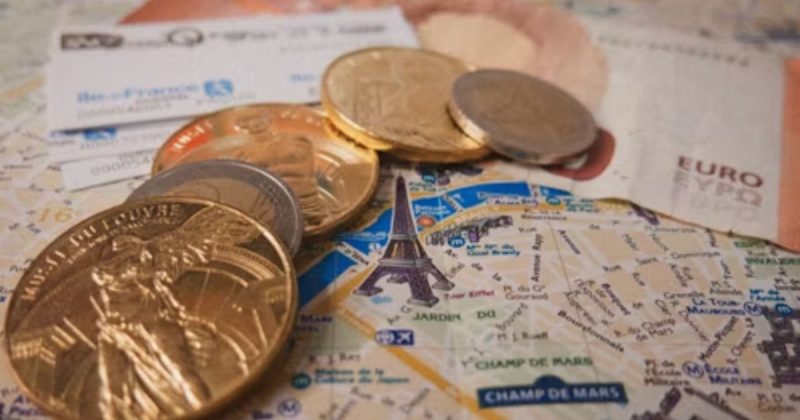Budget travel in 2025 is transforming the way people explore the world. While cost has long been a barrier for many would-be adventurers, new tools and trends are making travel more affordable than ever. Thanks to advancements in technology, creative lodging options, and a growing focus on sustainability, travelers can now enjoy rich experiences without incurring a significant expense. Whether you’re planning to backpack across continents, discover vibrant cities, or take a short weekend escape, budget travel in 2025 offers endless opportunities to see the world without breaking the bank.
Let’s dive into the most effective tips and emerging trends for budget travel in 2025.
The New Era of Budget Travel Tips in 2025
1. Embrace Flexible Flights and Booking Tools
Booking flights has become more dynamic in 2025, giving travelers greater control over scoring the best deals. Smart platforms like Skyscanner, Google Flights, and Kiwi.com have evolved, offering not just competitive prices but also flexible date options. These tools enable you to view fare variations across a range of dates, making it easier to identify the most affordable options. If your schedule is flexible, you can quickly see how adjusting your departure or return by a day or two could lead to significant savings.
AI-powered tools are also making predictions about the best time to book flights, offering invaluable insights on when to buy for the best deals. For instance, Hopper leverages machine learning to predict flight prices, allowing you to know the optimal time to book the best fare. Another major trend is the rise of budget airlines, such as Ryanair, EasyJet, and Spirit Airlines, which continue to offer inexpensive flights around the world. These budget carriers provide savings, but be sure to factor in additional costs, such as baggage fees, seat selection, and food, which can quickly increase the total price. To make the most of budget airlines, try to travel light and avoid unnecessary extras.
Pro tip: For the ultimate flexibility and savings, sign up for price alerts on flight booking platforms. This ensures you’ll be notified when a flight price drops so you can pounce on the deal immediately.
2. Affordable Accommodations: From Hostels to Micro-Stays
In 2025, the range of affordable accommodations is vast and varied. Hostels, once associated with crowded dorms and basic amenities, have transformed into stylish, modern establishments offering private rooms, high-quality facilities, and enhanced security. Many hostels now cater to solo travelers, couples, and even families, providing a great budget-friendly alternative to traditional hotels. The social environment in hostels also makes them perfect for meeting fellow travelers and swapping tips.
In addition to traditional hostels, short-term rentals on platforms like Airbnb continue to offer great value for money, especially when you book an entire apartment or house for a group or family. Home-sharing options, such as house-sitting, have also gained popularity in 2025. With house-sitting, you can stay in a home for free in exchange for looking after the property or pets while the owners are away. This offers an excellent opportunity for long-term budget stays in destinations worldwide.
Another emerging trend is micro-stays, where you can book accommodations for just a few hours or a single night, which is perfect for layovers or short breaks. Apps like Dayuse offer rooms on an hourly basis, enabling you to enjoy clean, comfortable spaces for a fraction of the cost of an overnight stay. This trend is beneficial for travelers with limited time who need a place to rest before catching their next flight or train.
3. Budget-Friendly Transportation: Trains, Buses, and Ride-Sharing
Transportation remains one of the most significant costs for travelers, but in 2025, there are more budget-friendly options than ever to keep your trip affordable and enjoyable. Train travel, in particular, is experiencing a renaissance as a scenic and economical way to get around. Thanks to services like Eurail and the expansion of high-speed rail networks, trains offer a wallet-friendly alternative, with the bonus of beautiful views and a more leisurely travel experience. Whether you’re exploring Europe, Asia, or parts of the U.S., rail travel is an excellent choice for covering long distances without draining your travel budget.
Buses are another fantastic option for budget-conscious travelers, with long-distance bus routes available on most continents. Services like FlixBus in Europe and Greyhound in the U.S. offer routes that are typically cheaper than flying, especially when booked in advance. In many cities, buses are also a convenient and affordable way to get around, with BlaBlaCar offering carpooling options to make travel even cheaper. Ride-sharing apps like Uber and Lyft now offer carpooling options, helping you cut transportation costs by sharing rides with fellow travelers.
Pro tip: Many cities offer transportation passes that can save you money if you plan to use public transportation extensively. Look for daily, weekly, or monthly passes that offer unlimited rides on buses and trains.
4. Traveling Sustainably on a Budget
In 2025, sustainability isn’t just trendy—it’s a practical and budget-friendly way to travel more responsibly without increasing your expenses. Simple choices, such as using public transportation, opting for reusable items, and selecting eco-friendly accommodations, can help save money and reduce your environmental footprint. Many eco-friendly practices not only reduce your carbon footprint but also help you save money. For example, carbon offset programs are available for flights, enabling you to mitigate the environmental impact of your travel while supporting renewable energy projects. Opting for public transportation instead of taxis or rideshares is a simple way to cut costs and reduce your environmental impact.
Eco-friendly lodging options, including green hotels and sustainable hostels, are gaining popularity. These properties prioritize sustainability by minimizing waste, conserving energy, and fostering local community engagement. Many eco-friendly accommodations are priced similarly to traditional ones, so you’re not necessarily paying more for sustainability.
Another growing trend is slow travel, which focuses on staying longer in one destination rather than hopping from place to place. Not only does this reduce your transportation costs, but it also provides a deeper connection with the local culture. By spending more time in one place, you can explore off-the-beaten-path destinations that are often less expensive and less crowded.
5. Smart Travel Tools: Apps and Sites That Help You Save
In the digital age, travelers have access to a variety of apps and websites that help them save money. Tools like Google Maps and Rome2Rio provide cost-effective travel routes, ensuring you’re always aware of the most affordable options. For budgeting, apps like Mint and Travel Mapper enable you to track your spending on the go, allowing you to keep a close eye on your finances and avoid overspending.
A crucial element of modern budget travel is taking advantage of loyalty programs and travel rewards. Many travel apps integrate loyalty points into their systems, allowing travelers to earn rewards that can be redeemed for flights, accommodations, and experiences. Platforms like Hopper will enable you to monitor flight prices and even predict when fares are likely to increase, allowing you to book at the perfect time. Similarly, KAYAK offers price alerts for hotels and car rentals, ensuring you never miss a bargain.
Another great resource is PackPoint, an app that helps you pack efficiently and avoid overpacking, which can lead to extra baggage fees. Packing light is one of the easiest ways to save money on your travels, especially when flying with low-cost carriers.
6. Experience Local Culture Without Breaking the Bank
Part of the beauty of budget travel is that it forces you to experience destinations authentically, often by immersing yourself in the local culture. While guided tours can be expensive, there are countless ways to explore a destination for free or at a minimal cost. Walking tours, for example, are often free or ask for a voluntary donation, giving you an insider’s look at a city’s history and culture. Many museums offer free admission days or discounted rates during certain hours, so be sure to check for these deals.
In addition to cultural experiences, food tourism has become a key aspect of budget travel. Instead of dining at expensive tourist restaurants, many travelers are choosing to eat at local food stalls, street vendors, or community kitchens. These places often serve delicious, authentic meals at a fraction of the price of more commercialized dining options. Apps like HappyCow and The Fork are excellent resources for finding budget-friendly restaurants that serve local cuisine.
7. Use Travel Credit Cards for Extra Savings
In 2025, travel credit cards offer top perks, including no foreign transaction fees, lounge access, and extra points—making them a smart choice for frequent travelers. Many cards provide substantial cash-back bonuses, miles, and points rewards that can significantly reduce the cost of flights and accommodations. Cards like the Chase Sapphire Preferred or Capital One Venture Rewards offer travel-related perks, such as no foreign transaction fees, trip insurance, and access to airport lounges. These benefits are ideal for budget travelers who want to enhance their travel experience without incurring additional expenses.
Make sure to compare the fees and benefits of different cards before applying, and look for those that offer the most valuable rewards for your travel habits.
8. Off-the-Beaten-Path Destinations
For budget-conscious travelers, the best way to save money is often to avoid popular tourist hotspots. In 2025, an increasing number of travelers are opting to explore lesser-known destinations that offer more affordable accommodations, food, and activities. Places like rural towns in Eastern Europe, the beaches of Southeast Asia, and the national parks of South America offer a great experience at a fraction of the cost of major cities.
Off-the-beaten-path destinations not only tend to be more affordable, but they also provide a more authentic and less touristy experience. By venturing beyond the typical tourist traps, you’re more likely to discover hidden gems and local secrets that will make your trip truly memorable.
Budget Travel Tips in 2025: A New Era of Exploration
Traveling on a budget in 2025 requires a combination of smart planning, effective use of technological tools, and an openness to new ways of exploring the world. With more affordable options for flights, accommodations, transportation, and experiences, it’s easier than ever to see the world without breaking the bank. Sustainable travel practices, tech-savvy resources, and a willingness to embrace off-the-beaten-path destinations will allow you to make the most of your adventures while keeping costs low. Whether you’re exploring nearby cities or trekking through remote destinations, budget travel in 2025 is all about being resourceful, flexible, and creative. Happy travels!















